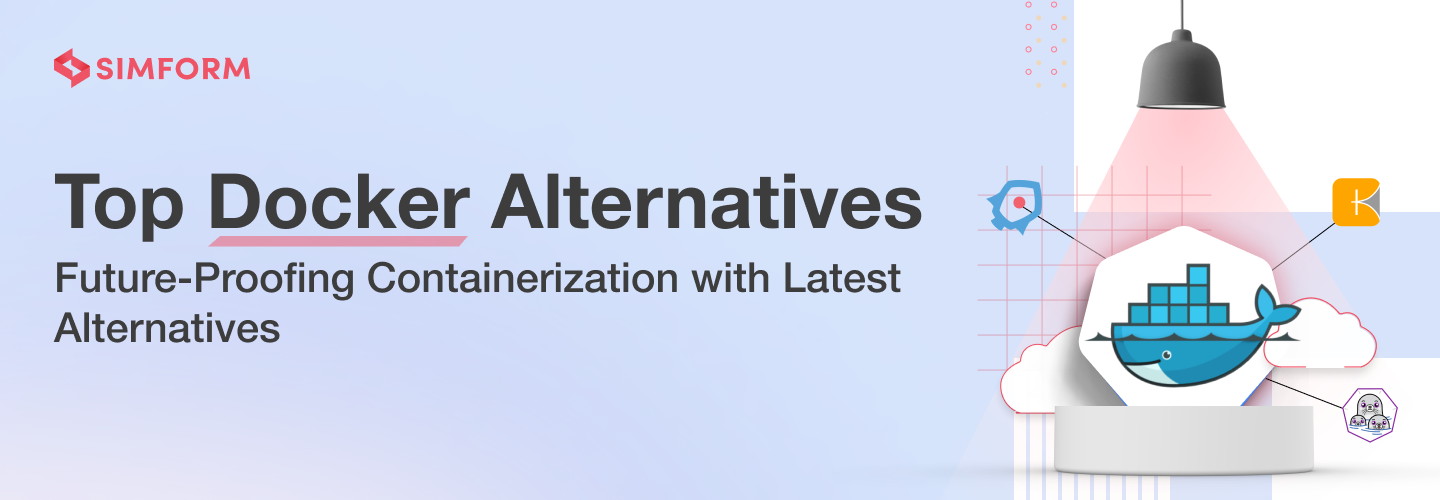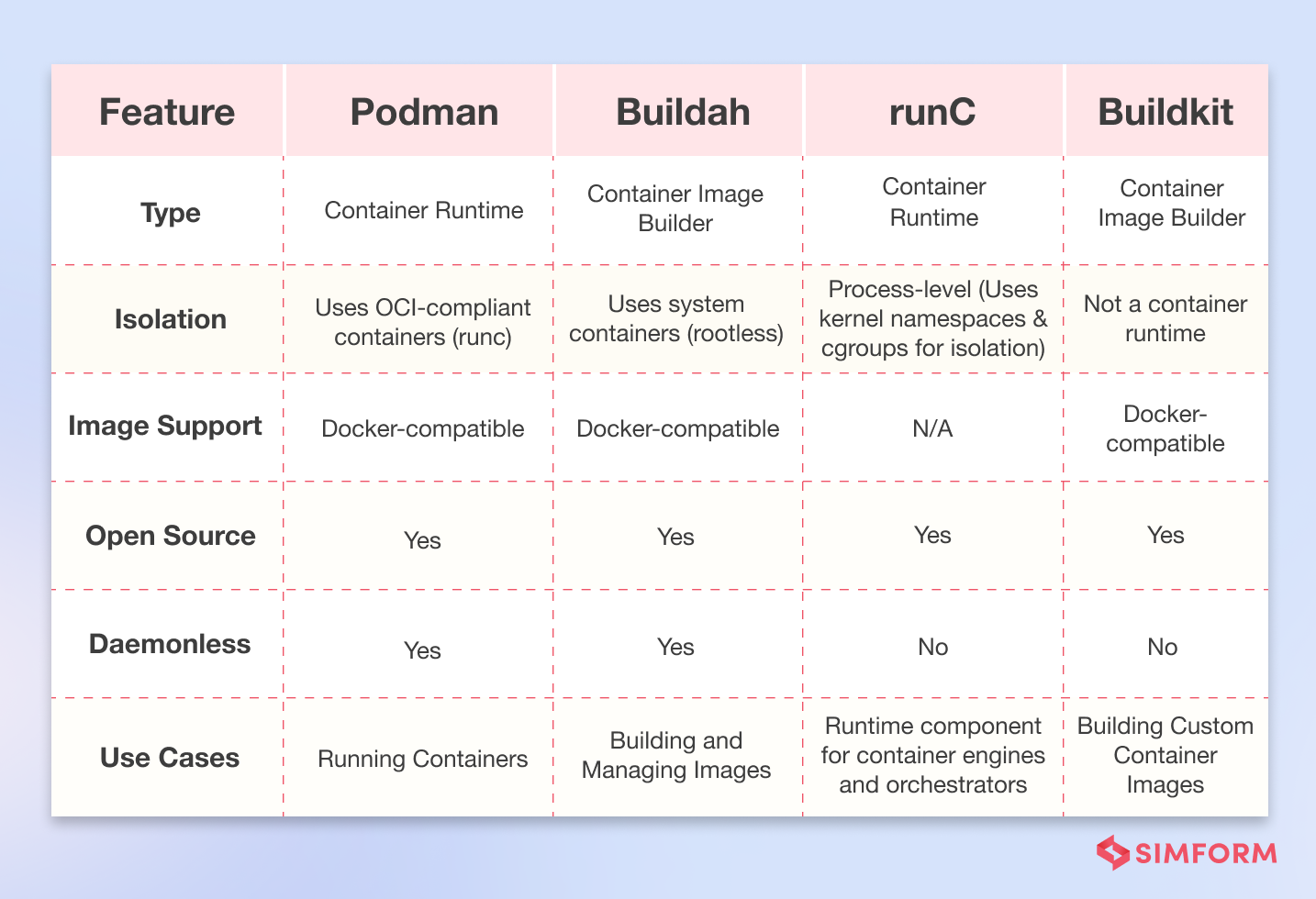11 Potent Docker Substitutes That Will Transform Containerization by 2024
Escape the confines of traditional containerization! Learn about eleven potent Docker substitutes to elevate your container strategy.


Tejas Kaneriya
February 10, 2023
8 mins read
Last Updated May 10, 2023

Docker gained popularity due to its simplified method of delivering and packaging software using portable containers, which provided companies with more scaling options. However, concerns were raised concerning inefficient use of resources and security flaws.
As a result, Kubernetes became a well-known substitute, reducing reliance on Docker and enabling a variety of runtimes via the Container Runtime Interface (CRI).
Additionally, developers have been investigating substitute container management solutions for Linux, Windows, and macOS environments as a result of Docker's subscription policy change.
Irrespective of individual tastes, it is always beneficial to have options!
With Simform, the leading containerization and orchestration consulting experts, you can realize the full potential of your company. Integrate Docker seamlessly or use one of its workable substitutes to grow your company to new heights. Get in touch with us to accelerate your business journey and receive a free consultation!
Docker alternatives to consider in 2024

In fact, Docker has competition from other container solutions like Podman, Buildah, Colima, and others that offer special features and functionalities.
Factors influencing the selection of a Docker alternative
Elements that affect the decision to choose a Docker substitute
It's critical to take into account particular virtualization requirements and limits when looking for Docker alternatives. The following factors should be taken into consideration while choosing a Docker substitute:
Harmony
Make sure the substitute integrates well with your current technology, platforms of choice, and infrastructure. Think about how well it will work with the protocols, standards, databases, and operating systems that are used in your company.
Features
Although Docker has many advantages, such networking and image stacking, be sure that any potential substitutes have features that meet your demands, like app separation, swarm, routing mesh, and security management.
Achievement
Evaluate other solutions according to metrics such as overall performance efficiency, resource consumption, and container startup time, given Docker's standing as an efficient containerization tool.
Price
Perform an exhaustive analysis of the financial consequences related to alternatives to Docker. To make well-informed selections, take into account aspects like initial and recurring costs, upkeep, support, licensing, training, and prospective infrastructure changes.
Community and Ecosystem
Assess the community's size and degree of engagement with the alternative. More resources, regular updates, and improved support are usually associated with a vibrant community. To improve your workflow, look for solutions with strong ecosystems that provide a variety of tools, plugins, and integrations.
Virtualization and Containerization
Examine the containerization technology used to support the substitute. Make sure it works with the infrastructure that already exists and the necessary container formats. To reduce resource overhead, look at solutions for lightweight virtualization.
Usability
Evaluate the learning curve linked to the substitute solution. Select a venue that fits the skill set of your team and doesn't require a lot of retraining. Seek for clear documentation and user-friendly interfaces to promote adoption with ease.
When choosing a Docker alternative, above all, give strategic congruence with your business objectives first priority. Think about things like overall suitability, support, performance, cost, and features. Please don't hesitate to contact us if you have any questions or concerns; we're here to help you identify the best Docker substitute.
FAQs
Exist any reasonably priced alternatives to Docker?
There are, of course, a plethora of free alternatives to Docker, such as LXD, Buildah, Kaniko, and Podman.
Is it possible for Kubernetes to function without Docker?
Yes, Kubernetes is capable of functioning without Docker. There are alternative runtimes, such as Containerd and CRI-O, that provide choices for running containers in a Kubernetes cluster.
What distinguishes Docker from Docker Desktop?
Certainly, Docker remains a relevant technology in 2024 due to its widespread adoption by numerous organizations, backed by major cloud service providers such as AWS, Google Cloud, and Microsoft Azure.
Will Docker still be relevant in 2024?
Because so many businesses have adopted Docker and because major cloud service providers like AWS, Google Cloud, and Microsoft Azure support it, it is still relevant in 2024.
